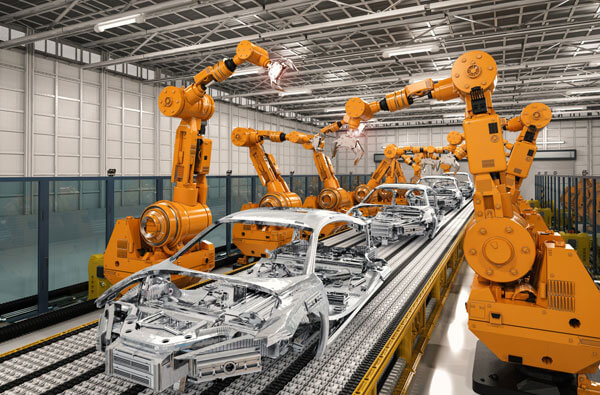Automotive Manufacturing Industry
DDetail

The automotive manufacturing industry involves the production, assembly, and distribution of automobiles, including cars, trucks, buses, and other motor vehicles. Here's a brief overview:
The automotive manufacturing process begins with design and engineering, where automotive engineers and designers develop vehicle concepts, prototypes, and production plans. Once the design is finalized, manufacturing facilities produce vehicle components such as engines, transmissions, chassis, body panels, and interior fittings using advanced manufacturing techniques and technologies.
Assembly plants then assemble these components into complete vehicles using automated production lines and skilled labor. The assembly process includes welding, painting, assembly of engines and transmissions, installation of electrical systems, interiors, and final quality inspections.
The automotive manufacturing industry serves both domestic and international markets, producing vehicles for consumers, businesses, government agencies, and other organizations. Vehicles are designed and manufactured to meet specific market demands, regulatory requirements, safety standards, and consumer preferences.
The automotive industry is highly competitive, with manufacturers continuously innovating to improve vehicle performance, fuel efficiency, safety, and environmental sustainability. Research and development efforts focus on developing alternative fuel vehicles, electric vehicles (EVs), autonomous vehicles, and advanced driver assistance systems (ADAS) to meet evolving customer needs and regulatory mandates.
The automotive industry is a significant driver of economic growth and employment worldwide, supporting millions of jobs in manufacturing, supply chain management, sales, marketing, and services. Automotive manufacturing facilities are major contributors to local economies, providing investment, infrastructure, and employment opportunities in communities around the world.
The automotive industry operates within a complex global supply chain, with suppliers providing a wide range of components, materials, and services to automotive manufacturers. Collaboration and partnerships between automakers and suppliers are essential for ensuring product quality, reliability, and cost-effectiveness throughout the supply chain.
The automotive industry is also influenced by factors such as technological innovation, market trends, consumer preferences, government policies, and regulatory requirements. Automakers must adapt to changing market dynamics and invest in research and development to remain competitive in the global marketplace.
Overall, the automotive manufacturing industry plays a vital role in transportation, mobility, and economic development, shaping the way people and goods move around the world while driving innovation and progress in the automotive sector.